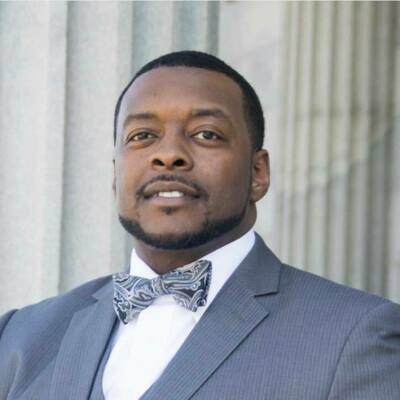Judicial Reform: A Close Look at the SC Judicial System’s Composition
 Rep. Ivory Thigpen, SCLBC Chairman
Rep. Ivory Thigpen, SCLBC Chairman
South Carolina, like many states, has faced criticism for its lack of diversity in the judicial system. The state's population is nearly 30% African American, yet the overwhelming majority of judges are white men.
The facts are the following:
- The Supreme Court is comprised of five total justices. Currently, all five are men, which includes four white and one black
- The Court of Appeals is comprised of ten judges. Currently, there are four males and four females, which consist of seven white and one black; note there is one current vacancy on the court.
- The Circuit Court consists of 54 total seats. The current makeup includes 43 males and 11 females, which further breaks down to 48 whites and six blacks.
- The Family Court consists of 62 total seats. The current makeup includes 32 males and 30 females, which further breaks down to 53 white and nine black.
- The Administrative Law Court comprises six seats, four males and two females, including four white and two black.
- Masters in Equity consists of 22 seats. The current makeup includes 20 males and two females and further breaks down to 21 white and one black.
- To summarize, Black South Carolinians hold only 20 seats out of the total 158 seats or about 13%, and women currently hold 49 seats out of the total judicial seats, or about 33% of the total. In contrast, women comprise over 50% of the state's overall population, and black South Carolinians account for nearly 30% of the state's population.
It has been widely and historically researched and reported the troubles the lack of diversity can have on a judicial system, process, and resolutions. These findings have proven the lack can directly affect the fair administration of justice and the perceived fairness of the system by minority populations that must appear before the system. It has been found that judges from diverse backgrounds help bring different perspectives and experiences to the bench, which helps to ensure that all individuals are treated fairly and without bias. In addition, it is proven that public confidence in the judicial system increases when there is a diverse judiciary bench. Diversity within the system inspires and encourages diversity among individuals that aspire to become judges. For all people within the state to have confidence in the system, a diverse group of judges is required.
SCLBC has maintained and increased outreach efforts to recruit and encourage diverse individuals to pursue careers on our state's courts. Furthermore, with the recent retirement of Judge Casey Manning, the appointment of Judge De'Andrea Benjamin to the federal court, and the law-mandated retirements of Justice Donald Beatty and Judges Clifton Newman and Alex Kinlaw in the coming years, diversity on the bench will become even more scarce and severely inflate the current problem.
Moreover, as the world witnessed the work and abilities of Judge Newman in the recent high-profile "Trial of the Century” that gained global attention, our advocacy for diversity is not a promotion of the unqualified, but rather, we advocate diversity amongst the qualified.
We strongly believe all efforts focused on judicial reform must start with the need to elect a diverse judicial system in terms of ethnicity and gender. We continue to call on all South Carolinians to advocate for a fair and just judicial branch and ask state legislators to work to increase diversity at all levels within our system. While a judge's ethnicity has nothing to do with the quality of their legal reasoning, diversity is essential because it is the only way to ensure South Carolina courts reflect the state's rich diversity. All South Carolinians suffer when there is a lack of diversity in our courtrooms.
Please support The Coastal Chronicles by subscribing today!
You may also like:







